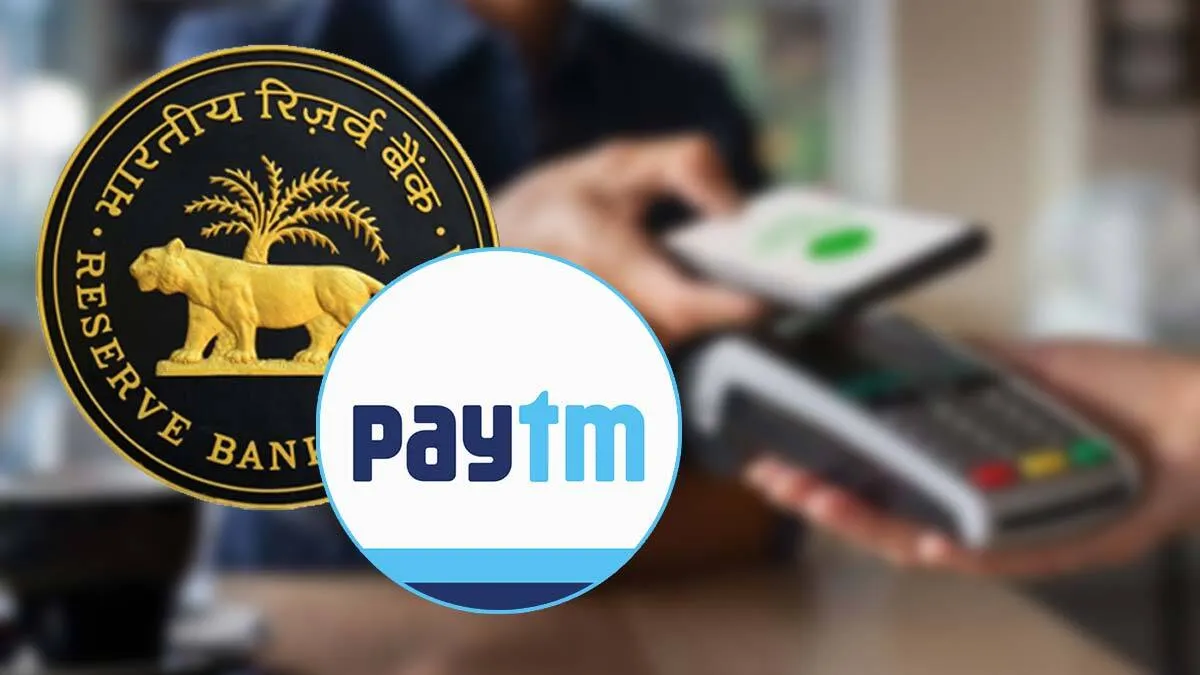RBI Action Against Paytm Payments Bank (Indian Express)

- 01 Feb 2024
Why is it in the News?
The Reserve Bank of India (RBI) recently barred Paytm Payments Bank from offering all its core services — including accounts and wallets — from March, effectively crippling the company’s business.
News Summary
- The Reserve Bank of India (RBI) has directed Paytm Payment Bank to halt accepting money in any customer account, including wallets and prepaid instruments like FASTags, from March 1.
- This action comes due to ongoing non-compliance and significant supervisory concerns highlighted by the RBI.
What Does the RBI Directive Include?
- Barred Services: Paytm Payment Bank is prohibited from offering most of its essential services.
- Account Closure: Paytm cannot accept deposits or top-ups after February 29, and nodal accounts of its parent company, One97 Communications, and Paytm Payments Services, must be terminated by February 29.
- Transaction Settlement: All pending transactions and nodal accounts initiated by February 29 must be settled by March 15.
- Customer Withdrawals: Customers are permitted to freely withdraw or use the money from their Paytm accounts, including savings and current accounts, prepaid instruments, FASTags, etc., within their available balance.
Reasons Behind the Action:
- Ongoing Scrutiny: Paytm Payment Bank has been under RBI scrutiny since 2018.
- Compliance Concerns: While specifics were not disclosed, it's believed the action stems from RBI's concerns about KYC compliance and IT-related issues.
- Data Security: RBI is cautious about safeguarding depositors' money and protecting data.
- Concerns arose when Paytm Payment Bank and its parent company lacked sufficient barriers to prevent unauthorized access to data by China-based entities with indirect stakes in the parent company.
What is a Payments Bank?
- Payment banks function similarly to traditional banks but on a smaller scale and without engaging in credit risk.
- Established based on recommendations from the Nachiket Mor Committee, their primary objective is to promote financial inclusion by providing banking and financial services to underserved areas, including migrant workers, low-income households, and small entrepreneurs.
Legal Framework and Features:
- Registered as public limited companies under the Companies Act 2013 and licensed under Section 22 of the Banking Regulation Act 1949, payments banks operate under various regulations such as the Banking Regulation Act 1949, RBI Act 1934, and Foreign Exchange Management Act 1999.
Key features include:
- Differentiation: Payments banks are distinct from universal banks and operate on a smaller scale.
- Capital Requirement: The minimum paid-up equity capital for payment banks is set at 100 crores, with promoters required to contribute at least 40% during the first five years of operation.
- Permissible Activities: Payments banks can accept deposits up to Rs. 2,00,000, invest in government securities to meet statutory liquidity requirements and provide various banking services such as remittance, mobile payments, ATM/debit cards, and net banking.
- Additionally, they can serve as banking correspondents for other banks.
- Limitations: Payments banks are restricted from issuing loans and credit cards, accepting time deposits or NRI deposits, and establishing subsidiaries for non-banking financial activities.
